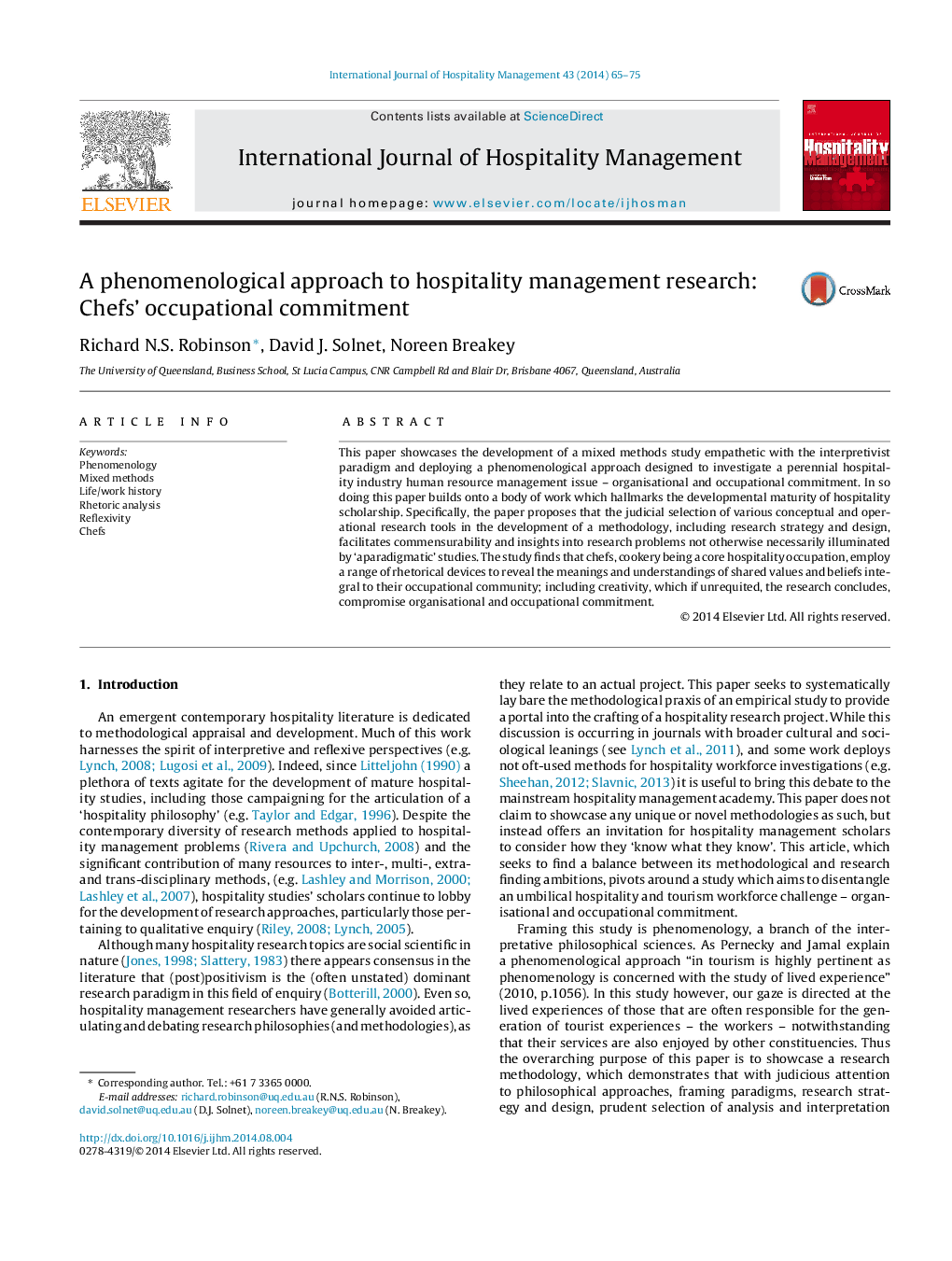| Article ID | Journal | Published Year | Pages | File Type |
|---|---|---|---|---|
| 1009342 | International Journal of Hospitality Management | 2014 | 11 Pages |
•Adopts an interpretivist paradigm, and phenomenological approach, for a hospitality workforce investigation.•Addresses the lack of critical methodological appraisal in hospitality management research.•Recasts and refines rhetoric analysis, previously applied to professional chefs.•Findings suggest that unrequited needs for creativity in work lead to boredom, job malcontent and turnover decisions.
This paper showcases the development of a mixed methods study empathetic with the interpretivist paradigm and deploying a phenomenological approach designed to investigate a perennial hospitality industry human resource management issue – organisational and occupational commitment. In so doing this paper builds onto a body of work which hallmarks the developmental maturity of hospitality scholarship. Specifically, the paper proposes that the judicial selection of various conceptual and operational research tools in the development of a methodology, including research strategy and design, facilitates commensurability and insights into research problems not otherwise necessarily illuminated by ‘aparadigmatic’ studies. The study finds that chefs, cookery being a core hospitality occupation, employ a range of rhetorical devices to reveal the meanings and understandings of shared values and beliefs integral to their occupational community; including creativity, which if unrequited, the research concludes, compromise organisational and occupational commitment.
